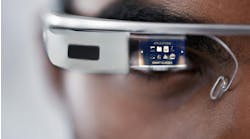On a recent business trip to Ohio, driving west on the Pennsylvania Turnpike, I departed my Philadelphia office early in the morning, atabout 4:30 a.m., in hopes of making it to Akron, Ohio, by noon. During my first rest stop, on the Pennsylvania Turnpike, I decided to buy a fresh cup of coffee. The woman who worked the food counter had a great sense of energy and enthusiasm, she was obviously a morning person. Customers were greeted with a smile and a pleasant invitation, “How may I help you?” The pervasive aroma of fresh-baked pastries, sizzling bacon and fried eggs filled the room and created an appetizing ambiance. However, the only purchase I had in mind was a cup of Joe.
When it was my turn, I ordered my coffee, pulled a five dollar bill out of my wallet and as I handed over the money to the woman, she asked, “Would you like a breakfast sandwich, they’re fresh?” So there I stood cash in hand, in the presence of an upbeat person who invited me to taste the food that filled the room with its enticing aroma. A positive response added $2.50 to my total. After she handed me the coffee and breakfast sandwich, along with a nice, “Thank You,” I stepped to the side to add a little milk to my coffee. I overheard the next transaction in which a customer ordered a cup of coffee and sure enough, this woman made the same suggestion which resulted in another breakfast sandwich sale. This added another $2.50 to her cash register. Being curious, I waited in the lobby, ate my breakfast sandwich, and watched this counter person serve more customers. She sold an additional four breakfast sandwiches in about five minutes. This woman’s sense of timing was outstanding. She waited until a customer’s wallet or purse was out, with cash in hand and then she asked her upselling question along with the value proposition, “They’re fresh.” Wow, I thought, that’s an additional $10 every five minutes, which could translate into $120 an hour. As I walked back to my car, I remarked to myself that this woman understood how to upsell.
Moreover, the woman at the counter also maximized her use of the Halo Effect. For anyone unfamiliar with the Halo Effect, it is the positive feeling we experience a split-second before we can intellectualize why we feel that way. Therefore, before I could think about whether or not I wanted a breakfast sandwich, I said yes. Why? Because of the positive vibe that culminated from the counter person’s smile, greeting and demeanor (the pervasive aroma didn’t hurt either).
Least understood
For many professionals upselling is one of the least understood business behaviors, which can have a most dramatic impact on revenue and profitability.
An HVAC technician who came to my home to repair our furnace maximized his Halo Effect simply by being observant and making a suggestion at the appropriate time. The technician’s name was Tommy.
It was a cold winter day and I was scheduled to depart for the west coast that afternoon. Tommy sensed my concern about wanting the furnace repaired ASAP. After he replaced a broken hot surface igniter Tommy waited patiently to ascertain my satisfaction. Upon feeling the warm air streaming through the vents, my concerns were alleviated and when I conveyed my thanks to Tommy he said, “It’s my pleasure.” And then he made a suggestion about replacing the PVC which was attached to our clothes dryer exhaust with sheet metal.
“The PVC could be a hazard in the presence of extreme heat,” Tommy said. “It should be replaced with sheet metal.” Similar to the situation on the Turnpike, before I could think about whether the PVC should be replaced, I said yes. My positive answer was based on the feeling that Tommy was trustworthy and capable.
Tommy probably noticed PVC when he first entered my basement and he knew his best approach was to maximize his use of timing. Being patient and waiting for my satisfaction enabled Tommy to take full advantage of the Halo Effect.
The definition of upselling is: offering a suggestion to an already receptive buyer to enhance the value of his or her purchase. Upselling does not include aggressive tactics. The purpose of upselling is to build a mutual benefit, so that both you and the customer win. So if upselling is such a great business practice, why don’t more companies do it? Perhaps the answer lies in the fact that upselling is a behavior that needs to be trained.
Training must also include what a plumber or HVAC technician should not say. For example, the Halo Effect can be derailed when a plumber conveys too much information, which results in customer skepticism. When a plumber says too much, this is called editorializing.
A common example occurs when replacing a faucet: a plumber would be editorializing by complimenting the customer for replacing their old and inferior faucet. This good intention can backfire, especially if one of the plumber’s counterparts installed the older faucet a few years back. The customer, latches on to the word “inferior” and wonders why they paid top dollar for sub-par equipment and this can easily result in a phone call to the plumbing company owner.
“Your employee just told me you guys installed an inferior faucet the last time, and I demand a refund,” says the customer as the company owner winces and struggles to explain that his company only installs quality equipment.
Customers hear what they want to hear. Every word and nuance conveyed by a plumber can be twisted around and misinterpreted.
As demonstrated by the woman at the rest stop, Tommy and the plumber, a Halo Effect manifests itself in numerous outcomes.
Steve Coscia helps contractors to make more money, boost upselling and increase customer retention. He is the author of the HVAC Customer Service Handbook and a soft skills college curriculum that is taught at more than 80 trade schools worldwide. To learn more about Steve Coscia go to www.coscia.com.

